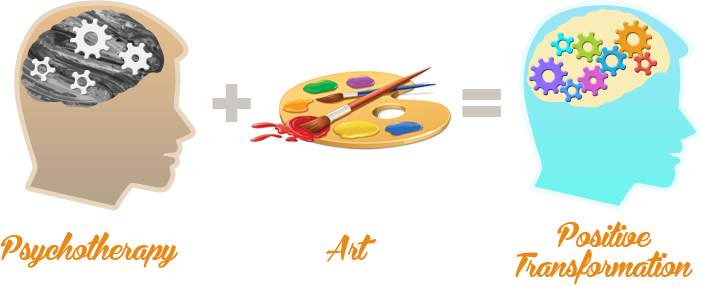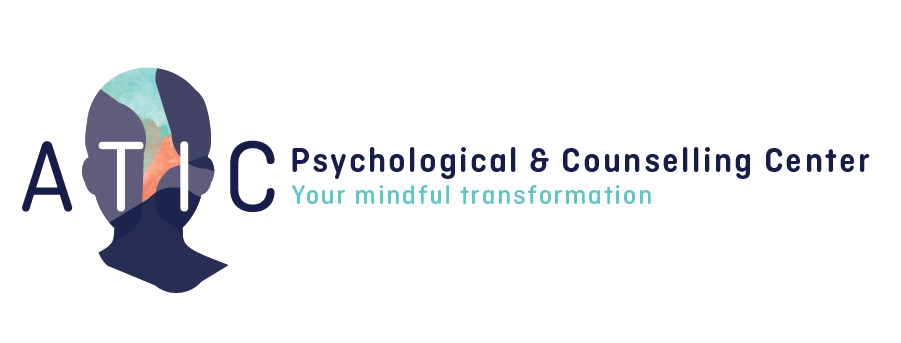Psychotherapy is more than just having a therapist listen to your problems. The heart of psychotherapy lies in the dynamic, two-way relationship between the individual and the therapist, strengthening attachment, which develops a foundation for healthy interpersonal relationships.
Psychotherapy focuses on the emotional well-being of a person; the individual is encouraged to face any negative self-beliefs, core issues, internal and external triggers and challenges which may have become a barrier to their cognitive and emotional growth.
Approaching feelings or thoughts that a person may have tried not to think about for a long time may be difficult. Making changes in beliefs or behaviours can be hard at first, but ultimately rewarding in the long run. At ATIC, we use a holistic and empathetic approach to provide individuals with a safe space in which to explore their potential. Helping to promote good health and wellness.
What is Art Therapy?
Art therapy has its roots in psychotherapy, also known as expressive art therapy, it can be experienced by children of all ages, adolescents, adults, the elderly, couples, families and in a group. Art Therapy develops neuropsychological functioning by encouraging communication between different parts of the brain, using art and at times different creative modalities such as music, drama, movement and play to help an individual identify and resolve core issues. This leads to restorative cognitive functioning and provides emotional regulation, developing personal insight, aiding positive transformation, and in reaching optimal learning potential.
Art therapy requires no artistic skills and is an effective intervention with people of all ages. It is especially beneficial to children, as it is a natural process for children to be creative and express themselves through the expressive arts. Art therapy is a valuable tool in teaching life skills, academic concepts, and in managing emotional health. Art Therapists can use non directive approaches and directive activity based therapy.
Art therapy can be used to address educational, psychological, and emotional difficulties in a safe and respectful way that is akin to play and not dependent on words alone.
Only trained art therapists with a postgraduate/masters degree in art therapy can administer this psycho-therapeutic modality and specialization.

What are the Benefits of Art Therapy?
Research in Art Psychotherapy supports its effectiveness in many areas such as:
- Improves cognitive functioning
- Improves communication skills
- Regulates emotions
- Integrates both hemispheres of the brain and develops neuroplasticity
- Improves social skills
- Develops secure attachment, the foundation to a healthy relationship
- Develops identity
- Facilitates physical development such as sensory motor skills and hand-eye coordination
- Develops imagination, abstract thinking skills, creativity and flexibility




